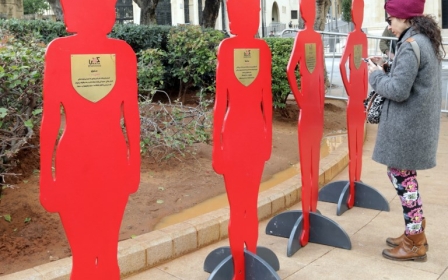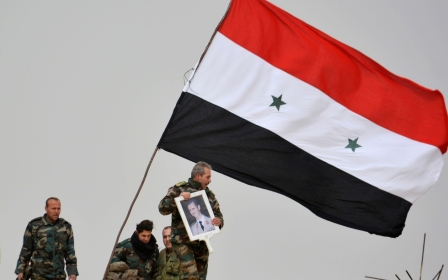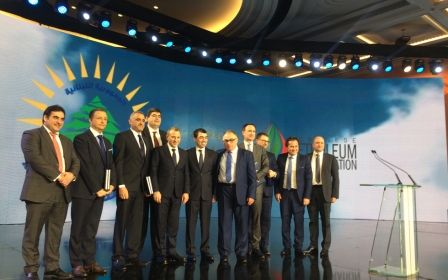Lebanon plans to boost army on border with Israel: Hariri
Lebanon plans to increase its military presence along its southern border with Israel, Prime Minister Saad Hariri said on Thursday at a meeting in Rome, where he is seeking financial support for the armed forces.
Bolstering Lebanon's army and internal security forces is seen as a way for the international community to keep Hezbollah from broadening its clout in the country.
About 40 countries participated in the meeting, along with United Nations Secretary General Antonio Guterres. While some financial aid was announced on Thursday, Hariri said that the goal of the meeting was not to gather pledges.
The Lebanese Armed Forces (LAF) took no part in the 2006 war between Israel and Hezbollah. Since then, it has received more than $1.5bn in US military assistance and, in the last seven years, training and support from US special forces.
The US State Department said on Tuesday that Washington renewed its support to the LAF at the conference, adding that the they are "critical to Lebanese security and stability".
"US assistance for Lebanon’s security services helps advance our shared goals in the region, enabling the Lebanese government to provide civilian security and assert its authority throughout all of Lebanese territory," department spokesperson Heather Nauert said in a statement.
Still, Hariri said that Israel, a major US ally, "remains the primary threat to Lebanon".
"We will be sending more LAF troops to the south, and we stress our intention to deploy another regiment," he said.
Hariri reiterated Lebanon's objection to Israeli plans to build a wall along the Blue Line, the unofficial border between the two countries.
In February, Lebanese President Michel Aoun said such a wall would violate Lebanese territories at 13 different points, calling for “corrections” along the Blue Line.
'Extremely satisfied'
In a joint statement, the conference participants said Lebanon should "accelerate effective and durable deployments to the South".
After the UN Security Council-mandated cessation of hostilities in 2006, the Lebanese army deployed 15,000 troops in the south, along the border with Israel.
On Thursday, Hariri said he presented the five-year plans for Lebanon's military and security services to the participants, and that each country would decide in the coming months how it could help.
The European Union pledged $61.6m to Lebanon's security forces, and Hariri said France had created a $492m credit facility to purchase "equipment" for Lebanon's military and security forces. The UK has pledged an additional $13m, it said on Twitter.
"I'm extremely satisfied with the outcome," Hariri said after the conference.
Hariri dismissed concerns that weapons intended for the Lebanese army would end up in the hands of Hezbollah, saying: "We have never lost a weapon to anyone... and it will never happen in the future."
Guterres told reporters: "This is the moment in which the international community needs to express its full support [for Lebanon]."
The Rome meeting is the first of three aimed at helping Lebanon stimulate its economy and weather the refugee crisis and civil war in neighbouring Syria.
In April, donors will meet in Paris, where Lebanon is seeking as much as $16bn in infrastructure investments. A meeting in Brussels will follow, intended to help Lebanon cope with the more than one million Syrian refugees it is hosting.
Middle East Eye propose une couverture et une analyse indépendantes et incomparables du Moyen-Orient, de l’Afrique du Nord et d’autres régions du monde. Pour en savoir plus sur la reprise de ce contenu et les frais qui s’appliquent, veuillez remplir ce formulaire [en anglais]. Pour en savoir plus sur MEE, cliquez ici [en anglais].




